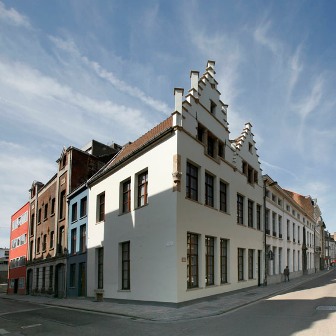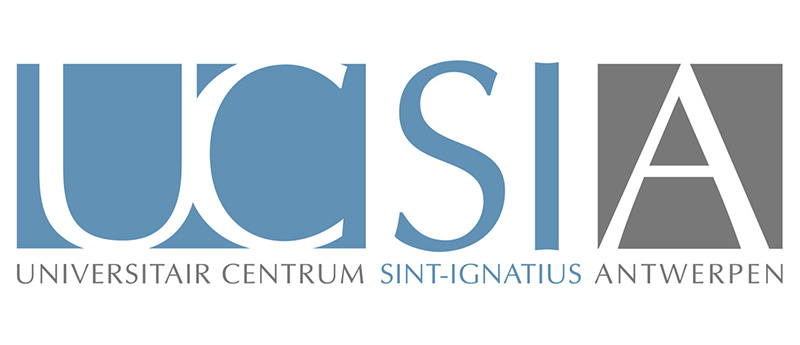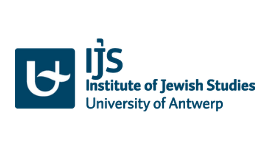And the Rest is History: Sabbath versus Sunday
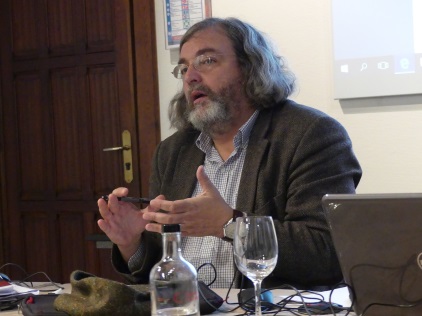
The UCSIA-IJS Chair is currently held by Claude (Dov) B. Stuczynski, Associate Professor in the Department of General History at Bar-Ilan University and board member of the Center for the Study of Conversions and Interreligious Encounters (CSOC) at Ben-Gurion University. His two central fields of research are the Portuguese Converso phenomenon and the first encounters between Europeans and Amerindians. He is particularly interested in the relationship between religion and politics in Medieval and Early Modern periods and is currently preparing a study of the theological-political dimension of the Converso phenomenon (what he terms “The Marrano Paulinian Moment”).
Lecture in English by Prof. Dr. Israel J. Yuval (Hebrew University of Jerusalem) with response by prof. Dr. Claude B. Stuczynski (Bar-Ilan University).
Industrialization created cultures of leisure. The pursuit of rest is part and parcel of capitalism, and it has become a universal human right. Today, we need rest not only from work but also from technology. However, the value of rest is the result of a long historical process, one in which Jews and Christians participated in antiquity and in the Middle Ages. The history of rest is restless. It contains all the components of a living culture: competition, strife, acculturation and imitation.
The question Prof. Yuval would like to address in this lecture is how the idea of rest evolved before it became common knowledge. From the beginning, Christianity set Sunday and not Saturday as the most important day of the week. Christians adopted the pagan criticism against the Jewish physical rest by defining it as “idleness”. However, in the fifth and even more so in the sixth century, the Sunday serenity became more and more justified by the biblical Sabbath model.
Parallel to the establishment of Sunday as a day of rest, there were trends to confer Christian content on Saturday. Christianity offered two alternative definitions of the concept of rest on Shabbat: the Eastern Church preferred a contemplative way and replaced rest with study; the Western Church preferred meditation, replacing rest with fasting.
Did the introduction of Sunday as an obligatory day of rest became a threat to the uniqueness of the Jewish Sabbath? Did Jews care about those internal Christian controversies? Did they formulate their own attitude toward the meaning of rest on the Sabbath?
Israel J. Yuval is currently the Academic Head of the Jack, Joseph and Morton Mandel School for Advanced Studies in the Humanities at the Hebrew University of Jerusalem. He holds the Teddy Kollek Chair for Cultural Studies of Vienna and Jerusalem and teaches in the Department of Jewish History at Hebrew University. From 1998-2008 he was the head of Germania Judaica IV (together with Prof. Michael Toch and Prof. Stefan Rohrbacher). In 2011-12 he was a co-editor of Tarbiz – A Quarterly in Jewish Studies. In 2002 he founded Scholion – Research Center for Jewish Studies and was its head from 2002 till 2010. His book Scholars in Their Time: The Religious Leadership of German Jewry in the Late Middle Ages (1988) won the Zalman Shazar Prize in Jewish history. His book “Two Nations in Your Womb”. Perceptions of Jews and Christians (Hebrew) was published by Magnes Press in 2000; an English translation was published in 2006 by the University of California Press. The book won the Bialik Prize in Jewish Studies and Literature, 2002 and was awarded by the French Académie des Inscriptions et Belles-Lettres, 2013. In 2016 Israel Yuval was the recipient of the Verdienstkreuz der Bundesrepublik Deutschland, awarded by the President of the Federal Republic of Germany, Mr. Joachim Gauck.
Date & Time
21 February 2019
8 p.m.
Location
University of Antwerp
Hof van Liere – Elsschotzaal
Prinsstraat 13 B
2000 Antwerp
Registration
Free entrance, but don’t forget to register online.
In collaboration with
Institute of Jewish Studies
interdisciplinary research centre for the scientific study of Judaism
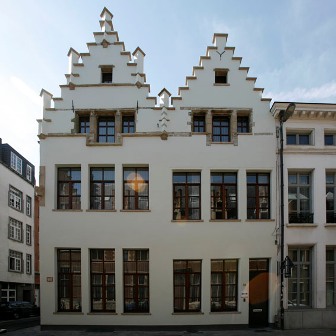
UCSIA
Koningstraat 2
B-2000 Antwerpen
info@ucsia.be
Tel. +32 (0)3 265 49 60
Voorlopige locatie tijdens de renovatiewerken:
Blindestraat 14, 2000 Antwerpen
